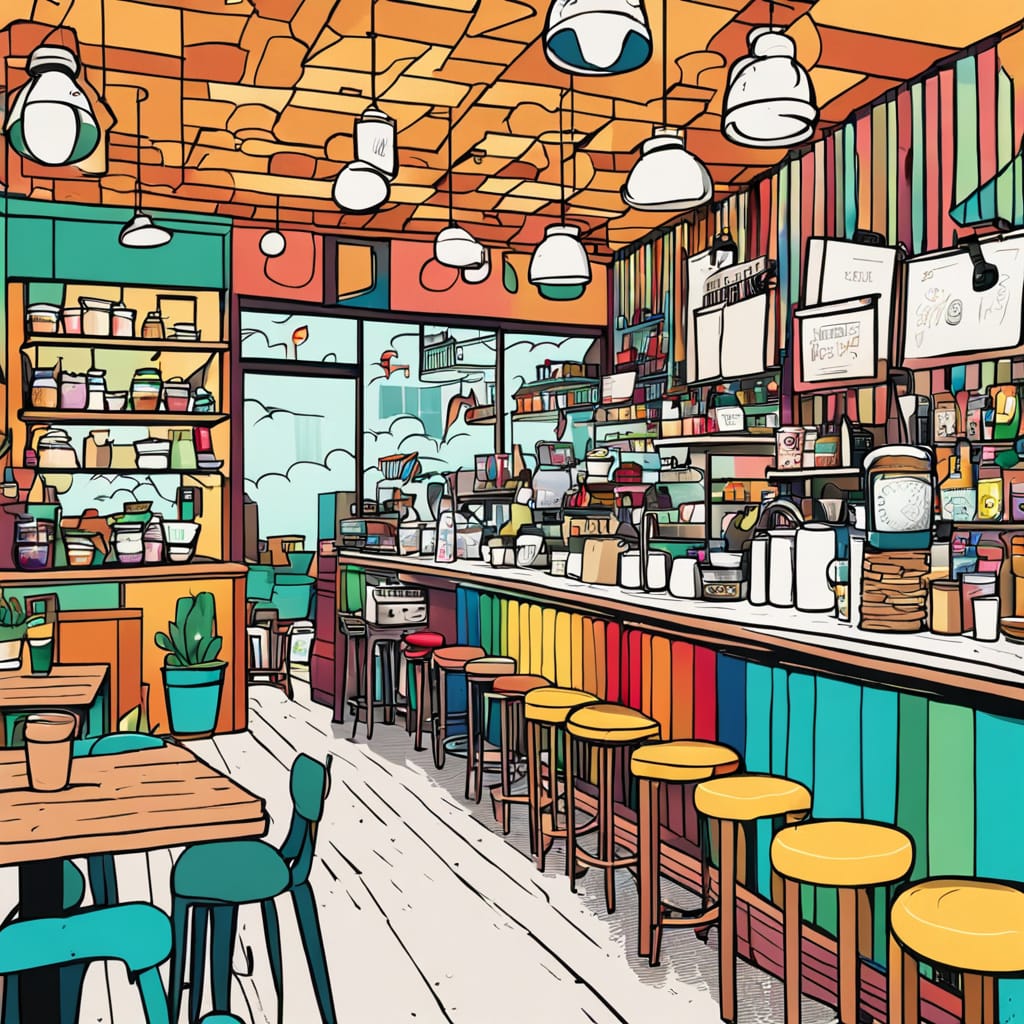
The image above was made with stable diffusion.
Between moving into a new place, work for WantToKnow, and launching my Rstory token on Solana, the last few months have been busy. So I haven't been blogging much. There hasn't been time, but I also haven't had anything pressing to say.
Broadly speaking, more and more people are waking up to the unfortunate truth that society has descended into dystopia. In response, some are doubling down on business as usual. Some are taking increasingly big risks. Some are digging deep to better understand and live their life's purpose. And some are determined to rebel in some way.
What all of these people have in common is that their hopes and dreams are currently being choked into lifelessness by the big squeeze. This squeeze began with the COVID economy sucking an enormous amount of value out of our lives and has progressed into a vast conspiracy of naked price gouging exacerbated by openly corrupt government. The impacts of this are customized to each individual person's circumstance. And our culture insistently tells each of us that our problems are personal, even when these problems are entirely the result of living in an unhealthy society.
In other words, hypernormalization is everywhere. Here's how this Guardian article describes it:
Hypernormalization describes life in a society where two main things are happening. The first is people seeing that governing systems and institutions are broken. And the second is that, for reasons including a lack of effective leadership and an inability to imagine how to disrupt the status quo, people carry on with their lives as normal despite systemic dysfunction – give or take a heavy load of fear, dread, denial and dissociation.
I've been seeing a lot of this kind of thing lately. It's unsettling. In the absence of clear direction, people are turning to religion or secular authorities. More and more are coming unglued. Here's some more from that article:
Witnessing large-scale systems slowly unravel in real time can be profoundly surreal and frightening. The hypernormalization framework offers a way to understand what we're feeling and why. ... Naming an experience can be a form of psychological relief. "The worst thing in the world is to feel that you're the only one who feels this way and that you are going quietly mad and everyone else is in denial," says Caroline Hickman, a psychotherapist and instructor at the University of Bath specializing in climate anxiety. "That terrifies people. It traumatizes people." People who feel the "wrongness" of current conditions acutely may be experiencing some depression and anxiety, but those feelings can be quite rational – not a symptom of poor mental health, alarmism or a lack of proper perspective, Hickman says. "What we’re really scared of is that the people in power have not got our back and they don't give a shit about whether we survive or not," she says.
My natural response to all of this is to do my part to help create a better alternative system as quickly as possible. This is not as easy as it sounds. The vast majority of people I know are at best disinterested in the prospect. Most can't grasp the idea at all. And so they struggle, separately from all of the others who are likewise struggling with their own individualized difficulties.
To be honest, I've been feeling increasingly distant from people like this lately. I can relate to them as humans but that's about all. In many ways, we live in different worlds. That's fine, but I do wish I knew more people who were actively working to produce the kind of future that I would want to live in.
I really only know a few these days, especially in my immediate orbit. The madness that enveloped society beginning in the pandemic caused most of my friends to scatter to far flung states and farther flung ideological enclaves. Where are the people who need to come together to make a better future possible?
Read Free Mind Gazette on Substack
Read my novels: - Small Gods of Time Travel is available as a web book on IPFS and as a 41 piece Tezos NFT collection on Objkt. - The Paradise Anomaly is available in print via Blurb and for Kindle on Amazon. - Psychic Avalanche is available in print via Blurb and for Kindle on Amazon. - One Man Embassy is available in print via Blurb and for Kindle on Amazon. - Flying Saucer Shenanigans is available in print via Blurb and for Kindle on Amazon. - Rainbow Lullaby is available in print via Blurb and for Kindle on Amazon. - The Ostermann Method is available in print via Blurb and for Kindle on Amazon. - Blue Dragon Mississippi is available in print via Blurb and for Kindle on Amazon.
See my NFTs: - Small Gods of Time Travel is a 41 piece Tezos NFT collection on Objkt that goes with my book by the same name. - History and the Machine is a 20 piece Tezos NFT collection on Objkt based on my series of oil paintings of interesting people from history. - Artifacts of Mind Control is a 15 piece Tezos NFT collection on Objkt based on declassified CIA documents from the MKULTRA program.